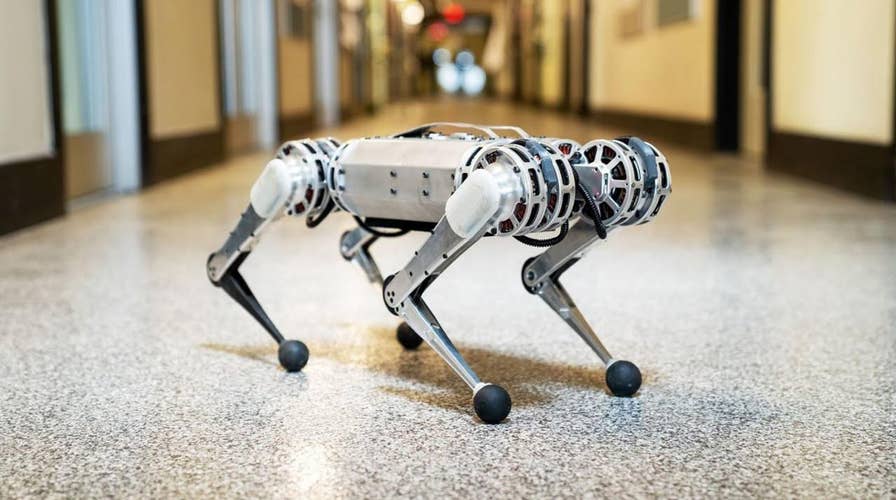If your toaster caught on fire, how would you feel? Oh, not for yourself, but for your toaster? Would you be sad for it? Would you eulogize its life? This may sound like a stupid set of questions, but the equivalent is already happening with robots, and it represents a dangerous trajectory for mankind.
A recent article in The Wall Street Journal talked about the ways that people are beginning to assign human attributes to robots. While you may have thought I was crazy about asking about the toaster, per the article, when a robot caught fire on the UC Berkeley campus due to its battery exploding, "students held a candlelight vigil for the charred robot ... about 60 people gathered to place candles where the fire had occurred."
Another example cited a student who watched a delivery robot get slammed on its side. The student is quoted as saying, “I felt so sad for it.” Sad — for a delivery robot. It sounds unimaginable, but it is happening and accelerating in its frequency.
NASA IS SENDING 'ROBOTIC BEES' TO SPACE
In a sense, none of this should be a surprise. As companies introduce AI technology and physical bots — as well as products that combine the two -- they have looked to humanization to accelerate acceptance of the technologies. That strategy has worked exceedingly well. How many millions of people right now are talking to a computer program with a human name, like Siri, Alexa, Cortana or otherwise? Robots are also given human type features, sayings or reactions. While this may be a route to gain acceptance, it also trains humans to change their view of the technology.
This may almost be too easy to accomplish. Humans already anthropomorphize animals, attributing all kinds of human characteristics to what are now known as fur-babies or members of the family. However, while animals are actual living beings that share some characteristics with people, they are also limited in their capabilities. No matter how many feelings you attach to your dog or cat, they aren’t going to learn to speak your language fluently or take your job or emulate the full slate of human emotions.
People have a responsibility to take a stand and limit the relationships they have with technology, as well as define them in their own terms.
Robots and technology, on the other hand, while not living beings in the traditional sense of flesh and blood, will not be limited in their capabilities. With input from humans, combined with the power of technology, they will be able to calculate information more quickly, repeat tasks more accurately and even emulate a full slate of human emotions.
The one thing that robots and the tech behind AI will lack is empathy. They can fake it, but they can’t really feel it. However, when humans start to attach emotions to technology and to feel for them, they will become de facto humanized.
This isn’t a concern about automation. It’s a concern about humanization.
CLICK HERE TO GET THE FOX NEWS APP
It’s easy to blame the companies that produce these products and try to cultivate a human connection with a bot, but producers will only allocate resources over time to what is demanded and desired by the market. People have a responsibility to take a stand and limit the relationships they have with technology, as well as define them in their own terms. If robots take over jobs, relationships and eventually mankind, it is people -- not the robots - who will be the ones to blame.
Robots are not people — for now. You have the power to make sure it stays that way.

